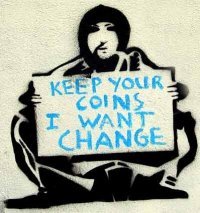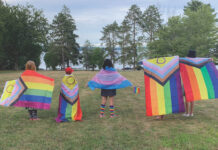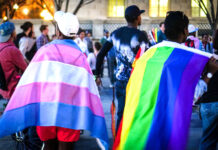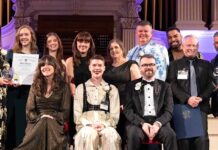 On July 31, the Boston City Council held a hearing on LGBT Youth Homelessness convened by Councilors Michelle Wu and Ayanna Pressley.
On July 31, the Boston City Council held a hearing on LGBT Youth Homelessness convened by Councilors Michelle Wu and Ayanna Pressley.
The reports from community members and organizations were that the situation is frightful and growing. During the hearing, “youth” was determined based on the Massachusetts Coalition on Unaccompanied Homeless Youth definition: 24 years old and under. And “homelessness” was defined as those who are not in the physical custody or care of a parent or legal guardian and lack a fixed, regular, adequate nighttime residence. Other community organizations represented were HBGC BAGLY, GLAD, the Massachusetts Coalition for the Homeless, Bridge Over Troubled Waters, MassEquality, Network/La Red.
This issue isn’t solely a Boston problem. According to the first statewide survey of homelessness, out of 2,500 people interviewed under 25, 795 of those were unaccompanied/experiencing homelessness. 198 of those were in Boston.
The situation becomes even more daunting when considering LGBTQ homeless youth, as they are consistently overrepresented. It is currently estimated that 40% of homeless youth in the state are LGBTQ and 20.5% or half of those homeless LGBTQ youth are in Boston.
The problem is exacerbated by the fact that there is only one shelter in Boston specifically for youth. It only offers 12 beds each night, and there are none provided for LGBTQ people. Massachusetts is a right to shelter state, which means that homeless families with children are able to apply for emergency shelter. However families have been turned away because of limited resources. Also there is essentially no process for individuals to apply to emergency shelter.
LGBTQ people regularly reported experiencing harassment and mistreatment by staff and adult residents, along with unwelcoming policies that result in many of them preferring to stay on the street. One community member told the story of a transwoman who was denied a bed at a woman’s shelter and was instead forced to sleep on the floor.
Council members Michelle Wu and Ayanna Pressley showed real concern and inquired as to what is needed to better serve homeless populations.
Community members and organizations called for ongoing staff training around LGBTQ issues especially since homeless LGBTQ youth face the added stigma of societal disapproval of their sexual orientation/gender identity as well as the frequent rejection by their parents.
There was also a call for the creation of housing specifically for young people and a less stringent adherence to 18 being the age in which one becomes an adult. It was argued that life management skills development, nutritional assistance, access to food, counseling, housing, and cash assistance are still needed even after one turns 18.
Also during the hearing Council member Tito Jackson asked one of the witnesses about the disproportionate number of Black and Latin@ LGBTQ homeless youth. There appeared to be no answer to this question throughout the entire hearing.
It was also asked if there were any best practices for outreach. Just like the exact number of LGBTQ homeless youth is unknown there is also no clear count of those who are Black and Latin@ in Boston or the rest of Massachusetts. If current estimates are to be taken into account, the conditions are alarming, as it appears that we are on par with national stats. Although only 5-7% of all youth in America are LGBTQ, they comprise nearly 40% of all homeless youth in America. Of this population, 44% of homeless gay youth are Black and 26% were Hispanic” (Center for American Progress, 2012). Almost a third are Black/Latin@ youth!
This hearing was a needed first step to recognizing LGBTQ youth homelessness and identifying possible solutions. The creation of LGBTQ specific shelters in Boston and the rest of the state is likely the most logical next step towards alleviating and eventually eradicating youth homelessness along with the passage of (Bill H.135), an act providing housing and support services to unaccompanied homeless youth. Hopefully this can indeed be achieved with the LGBT community at the forefront of the conversation and the continued support of our city council members with the rest of the state.
JK Lynn is student at Brandeis and is also an intern at HBGC, serving as the organization’s advocacy coordinator. Contact at: jnash@hbgc-boston.org.








